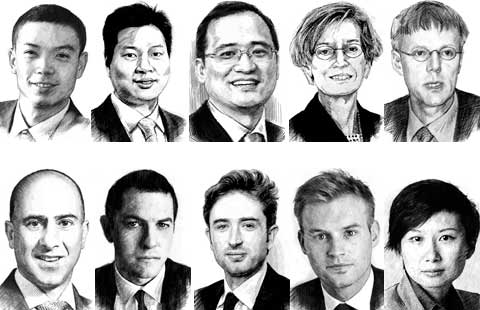Finding the right direction
By ANDREW MOODY (China Daily) Updated: 2015-01-05 07:30
|
 |
|
Martyn Davies, chief executive officer of Frontier Advisory. [Provided to China Daily] |
Martyn Davies, chief executive officer of Frontier Advisory, a leading research, strategy and advisory firm that specializes in emerging markets, based in Johannesburg, admits to taking a contrarian position. He thinks growth could be higher in 2015 than 2014.
"I am expecting growth to tick up by maybe one or two decimal points. That is because the government has had in place a couple of policy instruments to cool off growth such as restraining the property market and I think they will release the handbrake slightly."
A slowing China-if that is the actual outcome-has obvious implications for the global economy. One of the factors behind the slump in commodity prices, particularly oil, in 2014, according to many economists, has been the relatively weaker growth in the world's second-largest economy.
"I think the adjustment that China is making from its old manufacturing and export model to a new one based around services will put downward pressure on resource economics such as Russia, Australia, Brazil, Canada and some African economies," adds Roach, now a senior fellow at Yale University's Jackson Institute for Global Affairs.
Davies at Frontier Advisory says China's slowing growth is already challenging some of the perceptions about Africa's growth being driven by a young population and new middle-class consumers in reports such as Lions on the Move: The Progress and Potential of African Economies by global consultants McKinsey & Co that was published in 2010.
"Resources are the only show in town for many of the economies in my part of the world. Countries like Nigeria have based their budgets on oil being $125 a barrel and upwards and look now where it is. These guys are going to be in trouble.
"McKinsey seemed to create this idea that you get rich by spending but you have only to look at Asian economies like China to see that it is not true. You get rich by saving."
The main focus in 2015 might not be on China but Europe with the prospect of the eurozone plunging back into recession.
Its growth was only 0.2 percent in the third quarter and its three biggest economies-Germany, France and Italy-saw manufacturing decline in November.
- BMW to pay $820m to support China car dealers
- Alibaba sues to claim shares in Tianhong
- China's Hong Kong ranks 2nd among foreign investors in Vietnam in 2014
- What's in store for the stock market in 2015?
- Chinese-made locomotives delivered to Thailand
- Wanda, Baidu, Tencent JV raises $161m
- Land Rover ranked No 1, Shanghai VW makes 12 millionth car
- Carpenter creates e-vehicle with wood in Shenyang

















